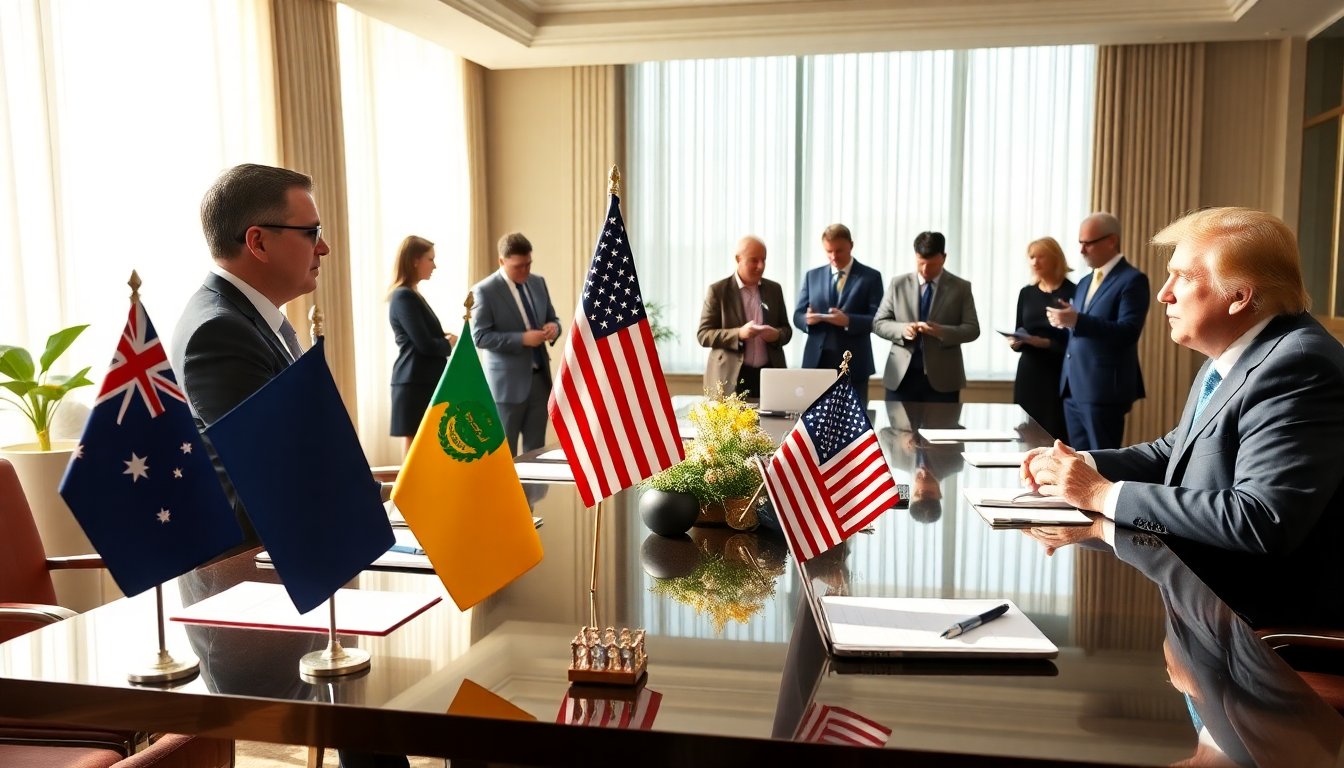Table of Contents
During a recent television interview from Washington, D.C., Australian Prime Minister Anthony Albanese shared insights about his interactions with U.S. President Donald Trump. The discussion revealed not only substantial agreements but also lighthearted moments between the leaders, particularly regarding Australian Ambassador Kevin Rudd.
Albanese characterized Trump’s comments about Rudd as playful, noting that the two leaders moved past any previous tensions. This meeting marks a pivotal moment in Australia–U.S. relations, presenting an opportunity for collaboration on pressing global issues.
Significant agreements and warm relations
In the interview, Albanese highlighted the successful outcomes of his discussions with Trump, focusing on a remarkable deal worth $8.5 billion related to critical minerals and rare earths. He stated that this agreement is pivotal for job creation in Australia and integral to bolstering economic ties between the two nations.
The Prime Minister expressed satisfaction with the constructive nature of their dialogue, which lasted nearly three hours. Emphasizing the importance of the AUKUS partnership, Albanese mentioned that both nations are committed to enhancing their defense collaboration. Trump echoed this sentiment, recognizing the significance of the relationship between Australia and the United States.
Albanese’s reflections on diplomatic dynamics
When questioned about the perceived awkwardness of Rudd’s past remarks about Trump, Albanese reassured viewers that the atmosphere was amicable. He described the exchange as relaxed, with Trump stating, “all is forgiven,” after Rudd extended his apologies for past comments. The Prime Minister likened the interaction to a casual family gathering, indicating a focus on moving forward rather than lingering on past grievances.
Albanese’s remarks underscore the importance of personal connections in diplomacy. He noted that engaging authentically with leaders is crucial for fostering strong international relationships. He further articulated that Rudd’s role as Ambassador is vital, as he is well-regarded among U.S. lawmakers and has established a strong network in Washington.
Future possibilities and ongoing challenges
Looking ahead, Albanese expressed optimism about the future of Australia–U.S. relations. He emphasized that recent agreements on economic cooperation are just the beginning of what both nations can achieve together. With a focus on economic resilience, the Prime Minister is keen to explore further opportunities for mutual benefit.
However, he also acknowledged the challenges presented by ongoing political dynamics within the Australian Parliament. Albanese criticized the opposition for their political maneuvering and stressed the need for unity in addressing national security and economic issues related to the AUKUS agreement.
Encouraging collaboration and engagement
Albanese’s enthusiasm for strengthening ties was evident as he discussed Trump’s potential visit to Australia, which he described as an open invitation. The Prime Minister conveyed that the U.S. president holds a favorable view of Australia and its people, which bodes well for future collaborations.
Reflecting on historical ties, Albanese cited the longstanding relationship that dates back to major events such as World War I and World War II. He emphasized that the partnership has evolved significantly over time and continues to be a cornerstone of both nations’ foreign policies.
Albanese characterized Trump’s comments about Rudd as playful, noting that the two leaders moved past any previous tensions. This meeting marks a pivotal moment in Australia–U.S. relations, presenting an opportunity for collaboration on pressing global issues.0


